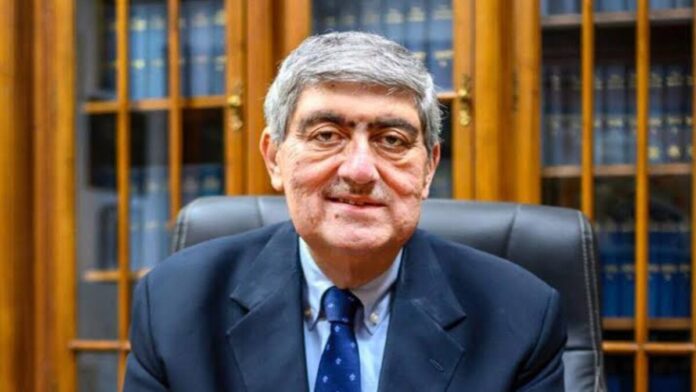Recently retired Supreme Court Justice Sanjay Kishan Kaul stressed in an interview that the judiciary is the conscience keeper of the Constitution, not the government or the opposition. Justice Kaul went on to say that political subtleties must be discussed in political arenas and that courts are supposed to decide legal matters.
Justice Kaul discussed the surge in political matters that the Supreme Court is hearing and emphasised how these cases affect the court’s calendar. He voiced worry that they take focus away from instances in which parties have been awaiting a settlement for a long time.
“In a way, it’s taking away time from ‘Ramlal vs Shyamlal’ matter. Poor chap whose case has been pending for 13-14 years, he doesn’t get the result of his small dispute. My belief is those cases also need to be addressed,” he said.
Not in terms of decision-making, but rather in acknowledging that certain matters are better suited for political discussion, Justice Kaul recommended against bringing political disputes before the court.
Justice Kaul noted the strength of the current government in relation to the political environment, but underlined that the opposition must put up the required struggle. There are balance governments of opposition and strong governments at different times. Without a doubt, a powerful government is in charge of matters now. However, the opposition must struggle as the solution, according to Justice Kaul.
While the court does have a conscience, Justice Kaul made it clear that this conscience belongs to the Constitution and not to the opposition or the government at large.
He emphasised that the court’s role is to address legal aspects, and political nuances should be debated in the political space.
“When I say we can’t play the role of the Opposition, I mean in areas which are not debatable in court; the more political nuances must be debated in political space. legal aspects will be debated in courts only and courts can’t shy away from taking a call on those. That is the job of the courts. Unfortunately, our job is such that we are bound to displease somebody or the other,” Justice Kaul said
He added, “Maybe in terms of a weak opposition, sometimes the expectation is we will extend ourselves beyond a certain level. But we can’t extend ourselves beyond what we do.”
Regarding the three criminal statutes that the government has introduced, Justice Kaul stated that in these kinds of situations, execution is a crucial factor. In order to reduce litigation, he stressed the significance of well-drafted legislation and recommended the necessity of judicial and legal impact studies in order to predict how new laws would affect litigation.
“I’ve not applied my mind to it. I believe implementation is the bigger issue. Law must be well-drafted, not well-drafted laws generate a lot of litigation. Some laws, even earlier were well-drafted, like Evidence Act. I’m told a lot is incorporated in the new act,” Justice Kaul said.
He continued by saying that he has previously emphasised the need for judicial and legal impact studies to determine how much more litigation the new rules will generate.
‘If you do that, you can create infrastructure. Often, that is not done. And in some case, the oldest example being of the Cheque bounce cases, it generated a huge amount of litigation and the purpose it was supposed to serve didn’t get served,” Justice Kaul said.
When asked about his earlier remarks supporting judges’ audacity, Justice Kaul clarified that they shouldn’t be afraid to grant relief when it is due.
“We blame the Executive that they don’t take a call as they think they may face something; we have Constitutional protection, we shouldn’t hesitate to give relief where due. When I joined, this one judge told me that a litigant comes as a last resort to court, if he is entitled to 50 don’t give him 45,” Justice Kaul said.
He stated that judges are not government revenue collectors and that he was never impressed when government counsel brought up the stakes in a case.
“Everyone wants to say something, but are you listening?” Justice Kaul said in response to his claim that intolerance is on the rise. You refuse to hear what other people have to say.




